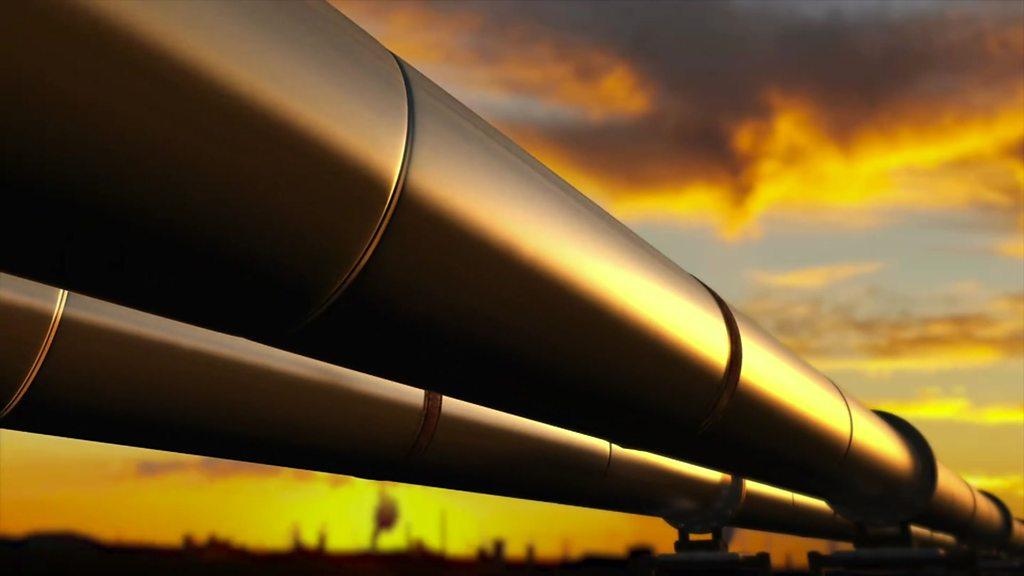Nord Stream 2: US and Germany reach deal on controversial Russian gas pipeline
- Published
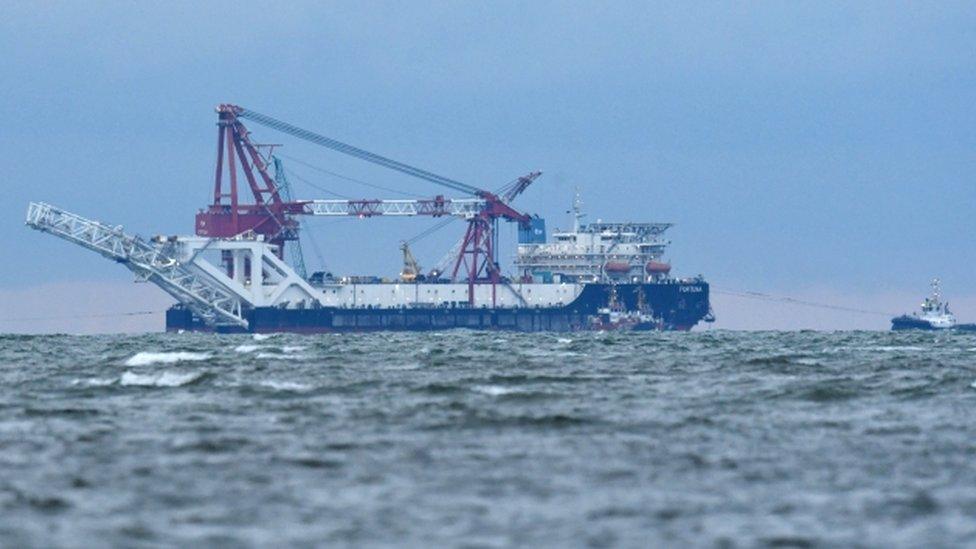
The Fortuna is a pipe-laying ship working on the Nord Stream 2 project
The US says it has reached a deal with Germany to prevent Russia from using its Nord Stream 2 gas pipeline as political leverage over Europe.
The near-complete 1,230km (764 miles) pipeline under the Baltic Sea will double Russian gas exports to Germany.
US official Victoria Nuland said it was "a bad pipeline", but said the deal envisaged sanctions against Moscow if it tried to blackmail Ukraine.
Ukraine says the Nord Stream 2 pipeline threatens its security.
The country has been fighting Russian-backed separatists in the east since 2014. Russia also annexed the Crimea peninsula from Ukraine in 2014. Kyiv fears a full-scale Russian invasion once Nord Stream 2 is fully operational.
Ukraine also stands to lose about $3bn (£2.2bn) a year in gas transit fees.
Poland is also opposing the pipeline, which runs from Vyborg in Russia under the Baltic Sea to Lubmin in Germany. Poland says the $10bn project threatens the security of central and eastern Europe.
Russia denies this and describes the project as commercially beneficial for all involved.
Under the terms of the US-German deal, Ukraine will get $50 million in green energy technology credits and a guarantee of repayment for gas transit fees it will lose by being bypassed by the pipeline through 2024, according to the Associated Press.
In May, US President Joe Biden's administration waived sanctions on a company building the pipeline, despite a strong opposition from Republican lawmakers.
Mr Biden's White House opposes the pipeline, but analysts say he is reluctant to risk a transatlantic rift with Germany at a time when he has been trying to reach out to European allies.
Like its already operational twin Nord Stream, the new pipeline will have the capacity of 55bn cubic metres of gas per year to Europe.
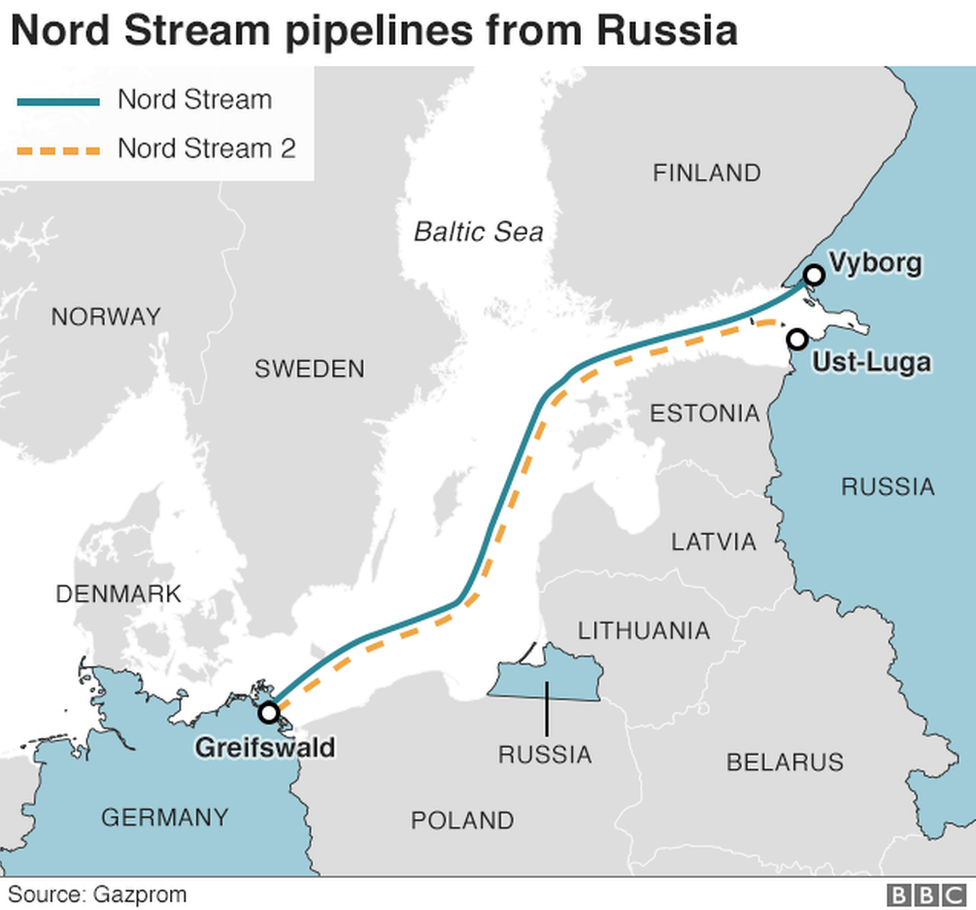
Related topics
- Published20 May 2021
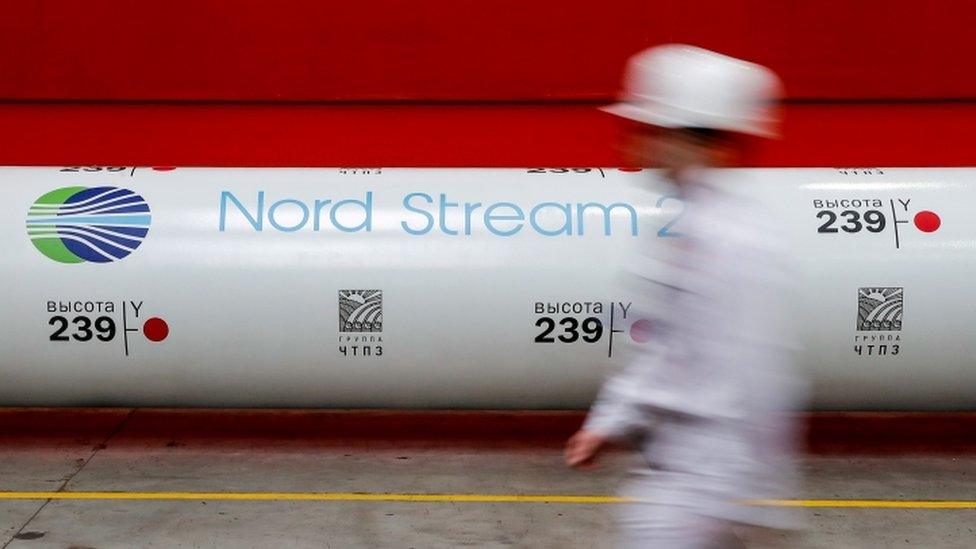
- Published21 January 2021
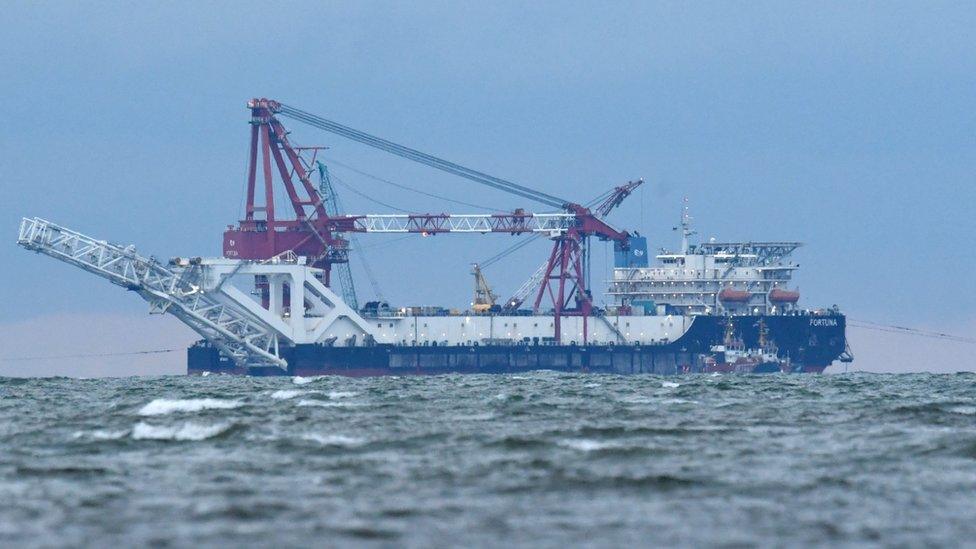
- Published8 February 2019
